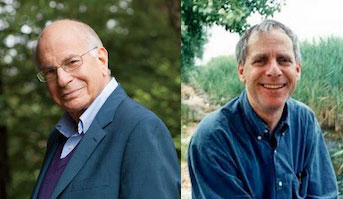Rationality Does Not Come Naturally
Rationality Does Not Come Naturally
In a famous set of 1970s experiments, Daniel Kahneman and Amos Tversky showed that many highly intelligent people are irrational.

In one study, they had people read a description of a person and then asked which was more probable: that the person described was a bank teller or that she was a feminist and a bank teller. The answer is obvious: since every feminist bank teller is a bank teller but not every bank teller is a feminist, it must be more probable that she was a bank teller than that she was a feminist bank teller. But 85% of those surveyed got the answer wrong – and the most intelligent people were as likely to get the answer wrong as the least intelligent. Oops. This is an example of the “conjunction fallacy” – the belief that the co-occurrence of two events is more likely than the occurrence of one of the events.
As a followup, Carey Morewedge and colleagues devised a series of interactive computer games to teach rationality. That was a bold move, since a long history of attempts to teach intelligence has been a dismal failure: no matter what approach is used, training does not raise intelligence as measured by IQ or other tests. But Morewedge and Co. found that it was quite possible to make statistically large and enduring increases in rational decision-making. Their key technique was to give people feedback about which decision was rational and why. What is so interesting about their approach is that people’s first impulse is to be irrational – only with training can people get beyond that.
Mobus Creative Negotiating incorporates into its seminars many lessons about the types of irrationality that commonly affect business decisions. We warn that negotiators should not assume that their counterparts will make rational decisions: that is simply not the natural impulse. Instead, the smart negotiator understands how people usually behave and make use of this knowledge to frame his proposals in ways that are likely to be most appealing.
This column was inspired by a column in the New York Times by David Hambrick and Alexander Burgoyne, “How Intelligence and Rationality Differ,”

